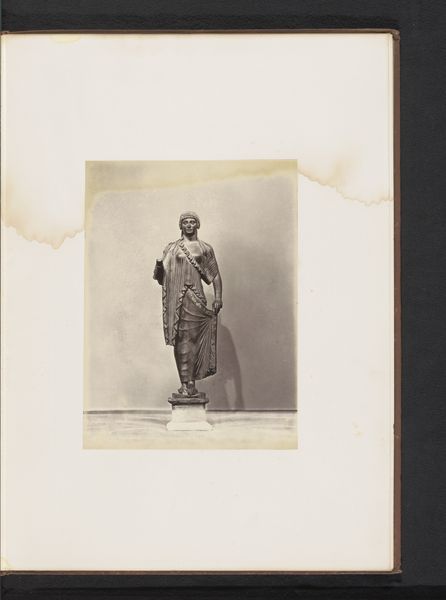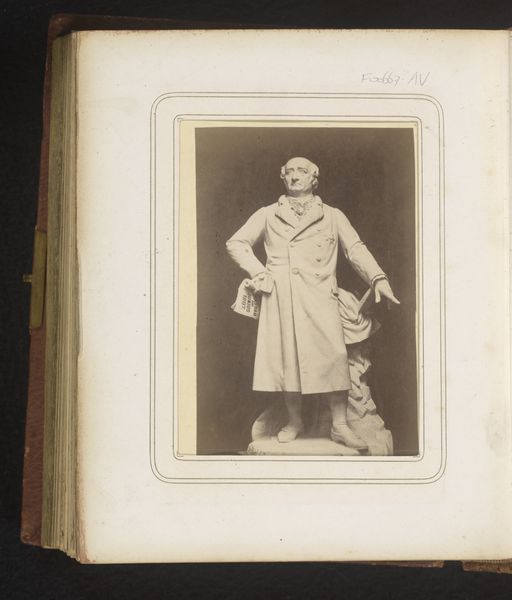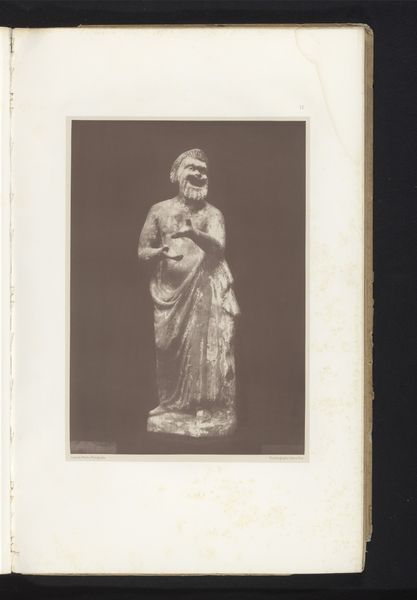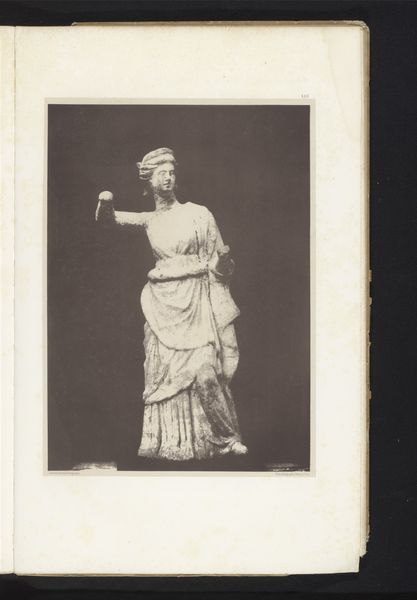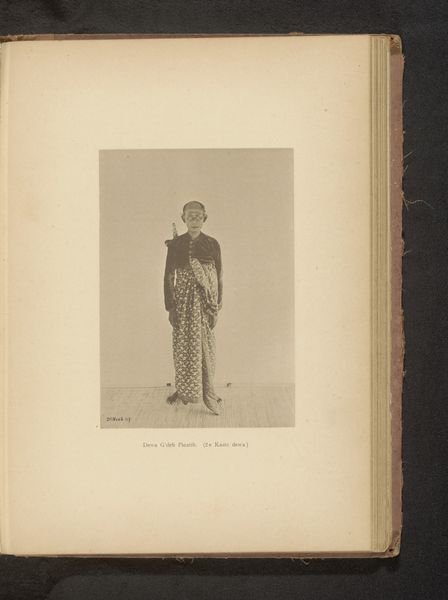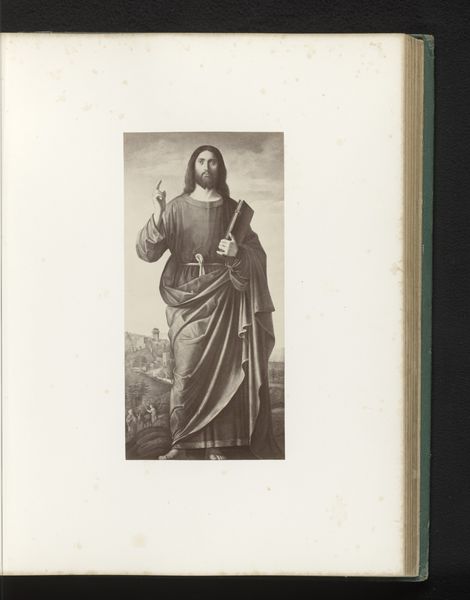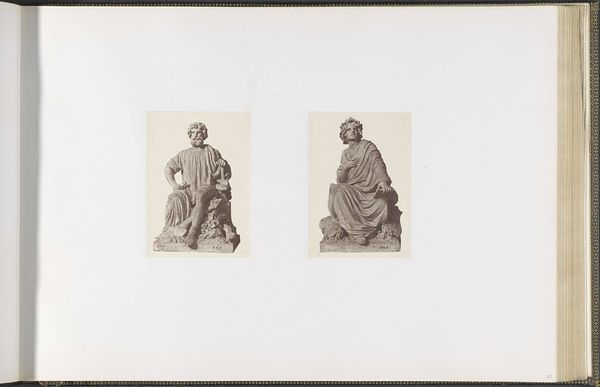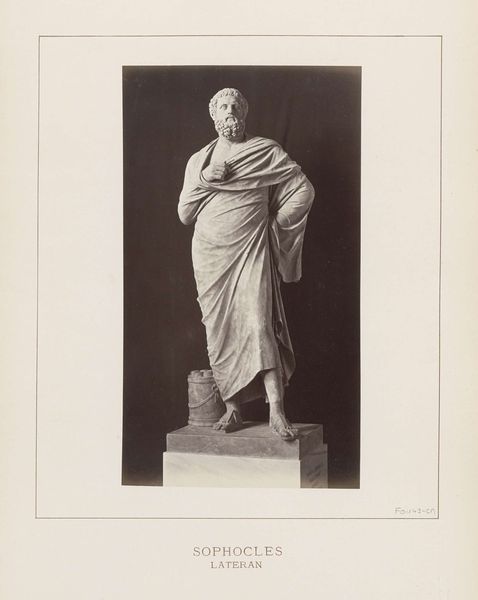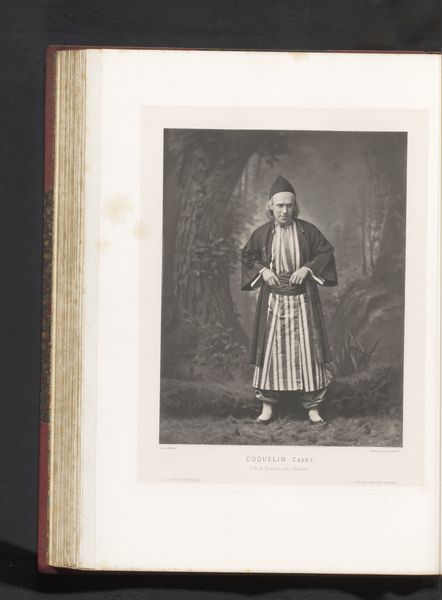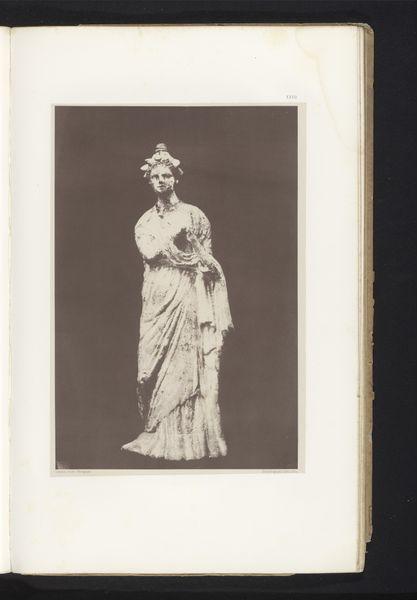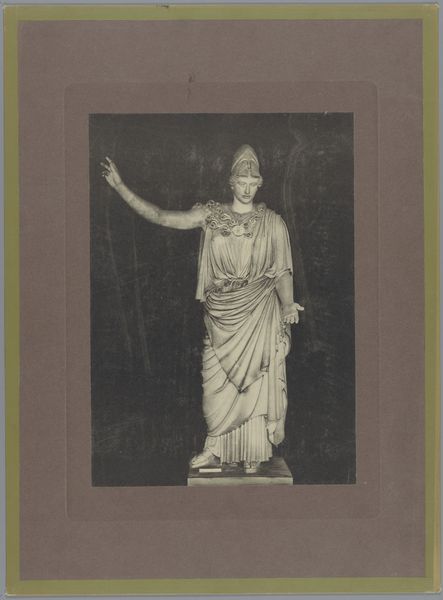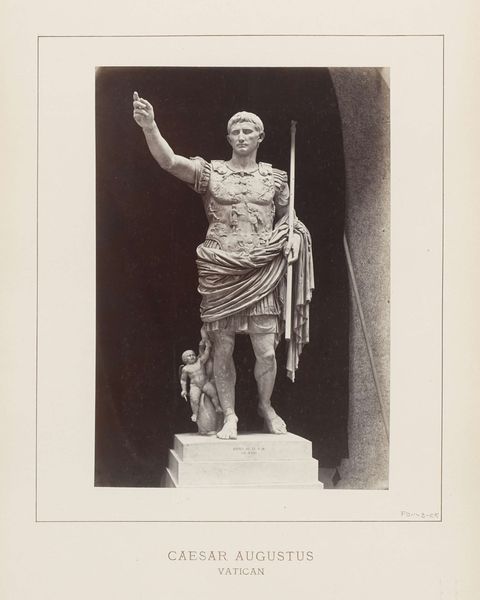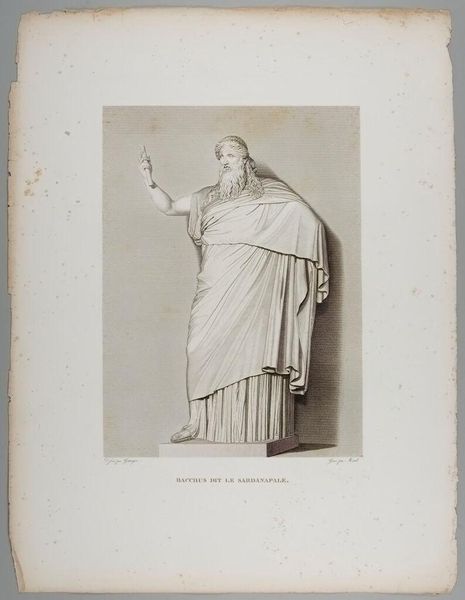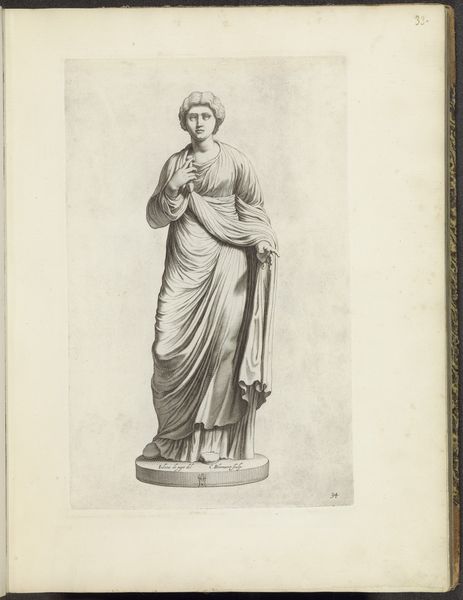
Portret van Henri-Polydore Maubant in de rol van Augustus in Cinna before 1880
0:00
0:00
anonymous
Rijksmuseum
#
aged paper
#
toned paper
#
homemade paper
#
muted colour palette
#
white palette
#
paper texture
#
unrealistic statue
#
folded paper
#
paper medium
#
historical font
Dimensions: height 268 mm, width 207 mm
Copyright: Rijks Museum: Open Domain
Editor: Here we have an intriguing print, "Portrait of Henri-Polydore Maubant in the Role of Augustus in Cinna," created before 1880. It's currently held at the Rijksmuseum. It feels a little theatrical and posed, wouldn’t you say? What stands out to you when you look at it? Curator: Oh, absolutely theatrical! The man’s a performer playing a part, and the whole image, printed on this homemade, almost fragile paper, feels like a preserved moment from a play, or perhaps even a dream about antiquity. What do you make of the fact that he's standing on that leopard skin? Editor: It's so unexpected! Is it a signifier of power, linking him to Roman emperors or maybe just… exotic? It feels almost camp. Curator: Precisely! It's delicious in its excess. It suggests not just power, but perhaps a kind of untamed energy that the 'Augustus' role might need to keep in check. It makes you think about the performative nature of power itself, doesn’t it? Are we always just playing roles on a stage? Editor: Definitely gives a new dimension to it! The choice of aged paper enhances that too – it blurs the line between ancient history and staged performance. Curator: It certainly does. That choice elevates this image. Instead of a simple portrait, we're handed a reflection on history, theatre, identity, and maybe a wry commentary on the whole endeavor of portraying the past. Did you find yourself making a narrative when first seeing it? Editor: It's all so self-aware! Now that I look again I realize the setting isn't all that serious. I mean, the pillar behind him... and his shoes, so pedestrian! I was getting wrapped up in its "historical" gravitas. Curator: Aha! It snuck up on you then? This piece may invite us to delve deeply into the meaning it may be conveying while poking fun at anyone trying to take the Roman empire seriously. Editor: I didn't consider it that way. A great lesson; thank you for unveiling a hidden facet I hadn't quite grasped initially!
Comments
No comments
Be the first to comment and join the conversation on the ultimate creative platform.
